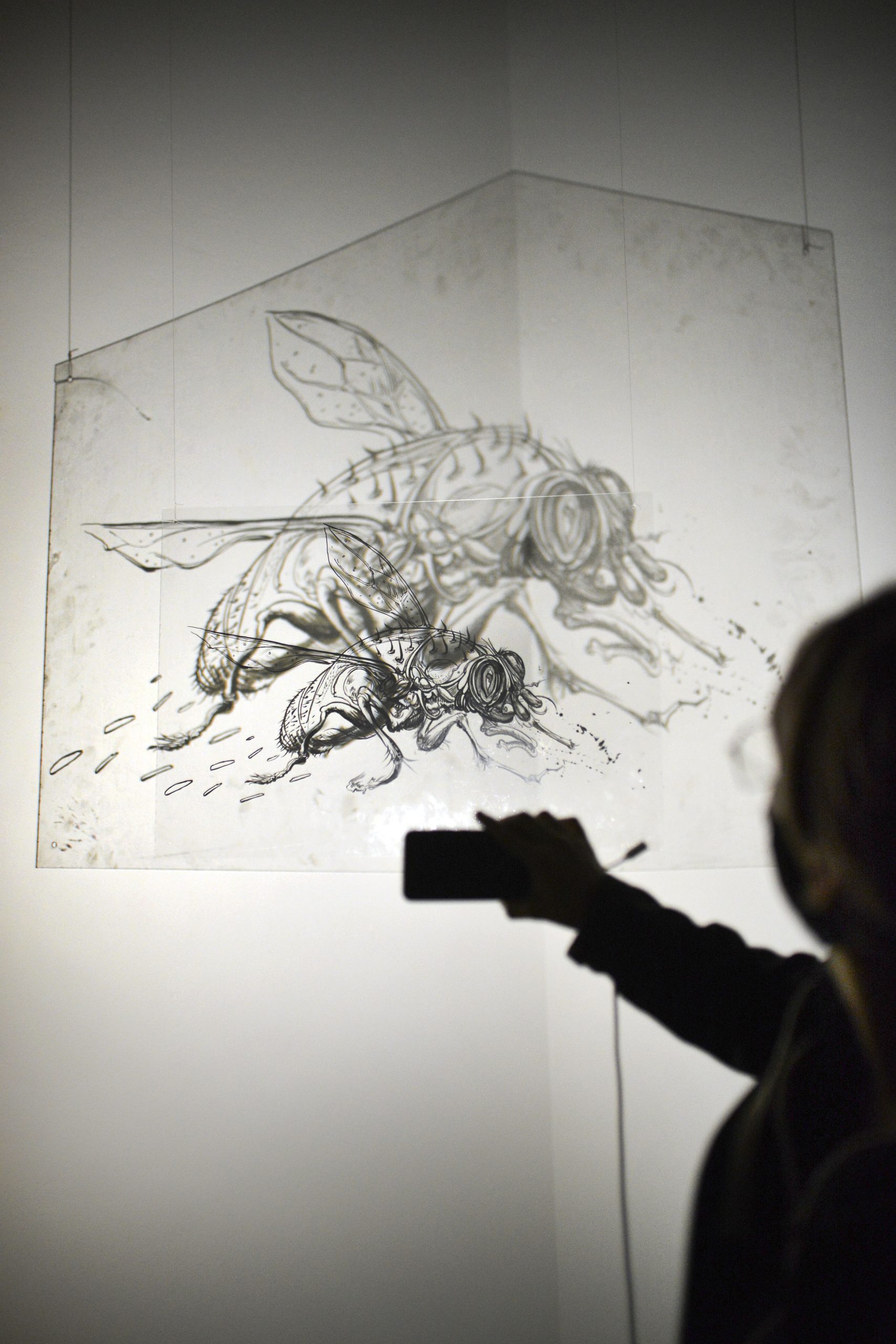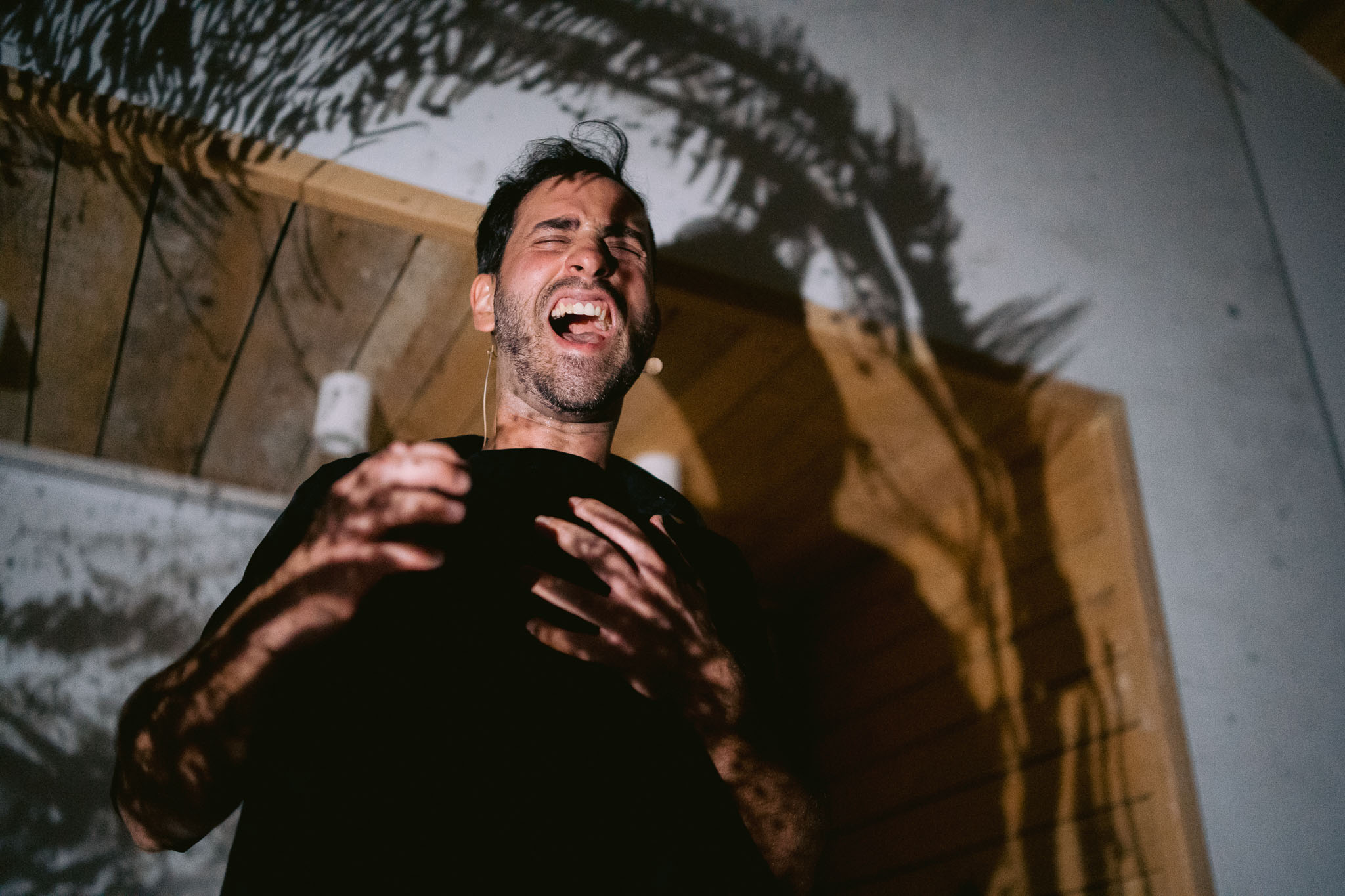Dark Room
Ex tenebris lux
In his latest installation Mr. Lalić managed to (re)create nothing short of a perfect paradox to one of civilization’s greatest allegories – the story of Plato’s Cave. Willingly entering the dark void in order to enlighten what lays hidden within ourselves, we leave the sunlight behind. The only source of luminescence comes from our direction: the decision to produce a unique shadow play transforms viewers into creators. We become the Sun ourselves, god-like, ancient, separated by windowless walls from the mundane and put into a theater in which the artist sets the stage for us, the viewers, the directors, the actors, to play out our fears and hopes on. It is our decision to engage with his drawings in a way that we find bearable, testing the waters carefully, threatening lightly, adjusting the wandering eyes to the spectacle of silhouettes, but even in the absence of courage to put our literal and metaphorical torches up to the diaphanous plexiglass, we are not residing alone in the dark. The artist’s broken voice chants deeply from the speakers. It seduces and fends off. It marries harmony with discord. This ritualistic practice fills the room with an eerie presence of something tribal, something primordial. The unavoidable sensation one gets is what it must have felt like when civilized humans discovered the cave drawings, stood face to face with some of the first artistic expressions ever created, been struck by realization that to create art is one of the fundamental urges of our species. Sulawesi Island’s 40 000 years old testament to human creation comes alive before our eyes in a form that is unexpected and new. Dark room teaches us a few powerful lessons. To see the world in its true form is to look inside. We are the ones casting shadows to the walls of our caves. Life is what you make of it by being brave or by standing scared. Darkness is a place we all came from and to which we shall all return. The cosmological fable the artist presented us with is something that is and should be hard to forget, since it strikes the core of who we are collectively and as individuals.











